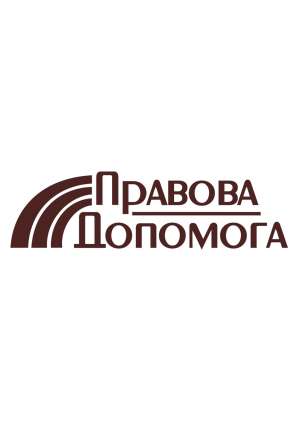New Rules for the Application of Double Tax Treaties
Cost of services:
Reviews of our Clients
In this article we will elaborate on the innovations introduced by Law 466 in the application of Double Tax Treaties (DTT).
Ukraine has ratified the Multilateral Convention to Implement Tax Treaty (MLI), which is a kind of “template”, an instruction for all countries to:
- prevent the hybrid schemes aimed at reducing the tax burden;
- prevent abuse in the application of double taxation treaties;
- avoid the status of a “permanent representative office” of a non-resident, etc.
The Convention provides for the need to raise repatriation tax rates on the payment of passive income to at least 5%, and introduces a number of other requirements, which are described below.
You may also like: May Back-to-Back Loans Be Used in Ukraine?
Introduction of the Principal Purpose Test (PPT) in Ukraine
Simply put, the main purpose of all transactions that claim to receive benefits under double taxation treaties (e.g., a reduced rate of the repatriation tax) shall not be tax evasion, or reduction of the tax base.
All transactions (and the choice of the receiving jurisdiction) must be primarily aimed at achieving an economic effect.
If no such effect is intended, the transaction may be considered fictitious and not eligible for the benefits of a double taxation treaty.
Every cross-border transaction must pass this test, according to the results of which the taxpayer must be ready to justify the economic side of the transaction. However, such an effect must not necessarily happen right away, it can be expected in a certain period of time.
In addition, the taxpayer must be ready to justify the choice of jurisdiction. When justifying the choice of jurisdiction, for example, why Cyprus, Malta, England, etc. is used as a holding company or as a trading company, it is not superfluous to focus on the following:
- political and economic stability of the jurisdiction, investment attractiveness (which must be confirmed by “respected” ratings journals);
- certain market conditions, beneficial for the client (it is necessary to order an appropriate market research in advance);
- opportunity to hire “inexpensive” qualified personnel, etc.
A prerequisite for passing this test is the existence of a substance (a real economic presence) in the country of registration:
- availability of local personnel;
- availability of a bank account in the company’s country of registration;
- availability of a real rented office (at least a small one);
- all decisions about the company shall be made in the office abroad (but not in Kyiv), etc.
We can help with the development of an appropriate set of measures that will facilitate the successful passage of this test.
Conversely, failure to pass the test will not allow the use of reduced rates of double tax treaties, but will impose a national tax rate on repatriation.
You may also like: Tax Exemption Cases For a Controlled Foreign Company (CFC)
Innovation: The “look through approach” in the application of Double Tax Treaties
The core of the approach is as follows: if a person receives income from Ukraine, but is not the beneficial owner of such income, it is necessary to determine the ultimate beneficial owner, and when paying the income to apply the provisions of the international treaty of Ukraine with the country where the ultimate beneficiary is a resident.
It’s worth noting that a person applying to the tax authorities for a refund of excessively withheld tax shall prove who is the beneficial owner (or who is not).
The right to apply the provision of the treaty with a certain country (the country of the beneficial owner) will have to be confirmed (proven) with the tax authorities by means of a set of documents:
- The recipient of income shall provide a free-form statement confirming that he/she has no status of a beneficial owner of income, as well as a statement that the non-resident has such status, which is on the “higher level”.
- The beneficial owner of income shall provide a statement that the non-resident has the beneficial owner status of income and documents confirming such status (e.g. licenses, agreements, official letters from competent authorities), as well as a document confirming the status of a tax resident of this country.
For simplicity, let’s take an example. In the case where the member of the Ukrainian company is Cyprus, and there is an offshore over Cyprus, then when paying dividends from Ukraine to Cyprus, and from there to the offshore, the Ukrainian tax office will have to prove that the Cyprus company is the ultimate beneficial owner of income. Of course, if you want to be able to apply 5% on dividends under a treaty between Cyprus and Ukraine instead of 15%.
If you cannot prove this, the Ukrainian tax office will insist on the application of the Double Taxation Avoidance Treaty between Ukraine and the offshore, which, of course, does not exist. Consequently, when paying dividends the standard tax rate for repatriation of 15% in Ukraine will apply.
You may also like: Tax Amnesty in Ukraine in 2022
Verification of the beneficiary of income in Double Taxation Avoidance Treaties
With the introduction of the “look through approach” in the application of international treaties, the Ukrainian tax authorities will more carefully check compliance with the concept of “beneficiary clause” of the income.
The right to apply a reduced tax rate for repatriation may be used only if the income recipient is proved to be the ultimate beneficiary of the income.
Otherwise, the reduced rate cannot be applied. At this, if previously (before the Law No. 466 came into force) for the purposes of confirming the “beneficial ownership” of the income recipient, the Ukrainian Tax Service was often satisfied with only a certificate of tax residency of a foreign company (where passive income from Ukraine was paid), now after the Law No. 466 the situation has drastically changed.
Firstly, it will be more thoroughly checked whether the income recipient has the right to dispose of such income. In addition to this, they will check:
- what functions the income recipient performs in this business model;
- what risks does it bear;
- whether it has its own assets;
- whether it has the resources (personnel, fixed assets) to carry out a similar business, etc.
If the analysis proves that the recipient is “empty” (does not have its own assets, office, staff, own funds, etc.), such recipient will not be recognized as the beneficiary of income, and will not be entitled to a reduced rate of tax on repatriation.
In what situations non-residents will be considered income taxpayers on a par with Ukrainian residents?
The list of profit tax payers includes one more entity – a non-resident with a “place of effective management” in Ukraine.
This means that a non-resident will be considered a profit tax payer on a par with resident legal entities, if it is established that it:
- holds meetings of the executive body in Ukraine;
- makes managerial decisions in Ukraine;
- performs current operating activities from the territory of Ukraine (including accounting or management accounting, managing bank accounts from Ukraine, managing personnel of a foreign company from Ukraine).
In this case, the foreign company must become registered with the Tax Service of Ukraine, and is subject to income tax at the rate of 18%.
On the contrary, there are no risks if:
- accounting and management are not conducted from Ukraine;
- bank accounts are not managed from Ukraine;
- personnel of a foreign company are not managed from Ukraine.
Simply put, this risk can be minimized by:
- keeping accounting and primary documentation of non-resident outside of Ukraine (for example, in the country of registration of foreign company);
- signing the primary documentation (agreements, invoices) by director of the company abroad (not by attorney by power of attorney in Ukraine), and avoiding sending it here;
- keeping no written communication and recording of agreements between the beneficiary and the director;
- ensuring that the resident does not have the keys to access the bank accounts of the non-resident, does not carry out bank transactions, etc.
Properly developed and implemented measures will significantly minimize the risk of non-resident recognition as a payer of income tax in Ukraine.
You may also like: Accounting and Taxation of Grants by Residents of Ukraine
Capital Gains Tax in Ukraine: When may it be applied?
If a non-resident owns shares / corporate rights in the authorized share capital of a Ukrainian legal entity, which are more than 50% formed at the expense of Ukrainian real estate, and sells these shares / corporate rights, then from now on we will talk about the origin of income of such non-resident seller with the source of origin in Ukraine.
Or, if the shares of a non-resident company are sold (by another non-resident), but we understand that such shares were indirectly formed at the expense of real estate located in Ukraine (exceeding 50%), then such non-resident again has income with source of origin in Ukraine.
In this case it is important to note that the tax agent responsible for payment of repatriation tax is a non-resident buyer, which shall take the following steps until the first payment is received:
- Become registered with the Tax Service of Ukraine.
- Pay tax at the rate of 15% (which can be generally lowered by the relevant treaty on avoidance of double taxation).
To determine the tax base, expenses incurred by a non-resident seller to acquire a share will be taken into account, if they can be documented by bank documents.
It is interesting that some treaties on avoidance of double taxation have exceptions. For example, the treaty between Ukraine and Cyprus contains a provision according to which if the immovable property is the object of economic activity (that is, one at the expense of which the Ukrainian company “lives” – for example, mines, hotels, grain elevators, etc.) in this situation the tax will be payable only in Cyprus. It is understood that there is no tax (tax on investment income).
Please note! If you sell a certain asset with real estate in Ukraine, such transactions should be structured in advance. Certain timely measures (dilution of assets, so that the share of real estate is less than 50%, or planning the transaction well in advance) can significantly balance the tax burden. This work is handled by our specialists.
What transactions can be reclassified as hidden dividend payments?
The Law No. 466 introduced the concept of “constructive dividends”. That is, now there are a number of transactions, which can be reclassified as hidden dividends, and to which, accordingly, the repatriation tax (applicable usually to dividends) can be applied. These are two blocks of transactions:
The first block includes transactions to which transfer pricing rules apply:
- sale of securities/corporate rights by a non-resident to a resident in excess of the value determined by the arm’s length principle;
- purchase of goods, works and services from a non-resident in excess of the value determined by the arm’s length principle;
- sale of goods, works and services to a non-resident at a significantly reduced price.
The first two situations involve the withdrawal of more money from Ukraine than what is due. The third situation means that Ukraine receives less money.
The second block includes transactions that lead to a decrease in retained earnings:
- reduction of the authorized share capital;
- redemption by a legal entity of corporate rights in its own authorized share capital;
- withdrawal of a member from the legal entity, etc.
The excess amount will be taxable in all cases.
We offer you the services of professional specialists in the field of tax and international law, who will be able to find a solution specifically for your business.
We offer:
- Analysis of the transaction for its “primary objective” and “business objective” (economic effect);
- Development of a strategy to justify the existence of a “business objective” for the transaction and assistance with implementation of that strategy;
- Analysis of the client’s primary documentation and recommendations for revisions;
- Analysis of the structure of the transaction and the company receiving the income as to whether it is a beneficial owner and whether a lower tax rate for repatriation of passive income from Ukraine can be applied;
- Identification of the risk of non-resident company’s “place of management” in Ukraine;
- Analysis of the transaction for reclassifying it as a hidden dividend payment; Recommendations on how to minimize such risk;
- Structuring of the transaction on sale of corporate rights (Ukrainian or foreign), formed by the Ukrainian real estate – in order to minimize the tax burden;
- Support for transactions on sale of corporate rights (Ukrainian or foreign), formed by the Ukrainian real estate;
- Support of transactions involving non-residents: drafting of necessary primary documents, analysis of tax consequences, coordination with counterparty and bank.
Our clients






